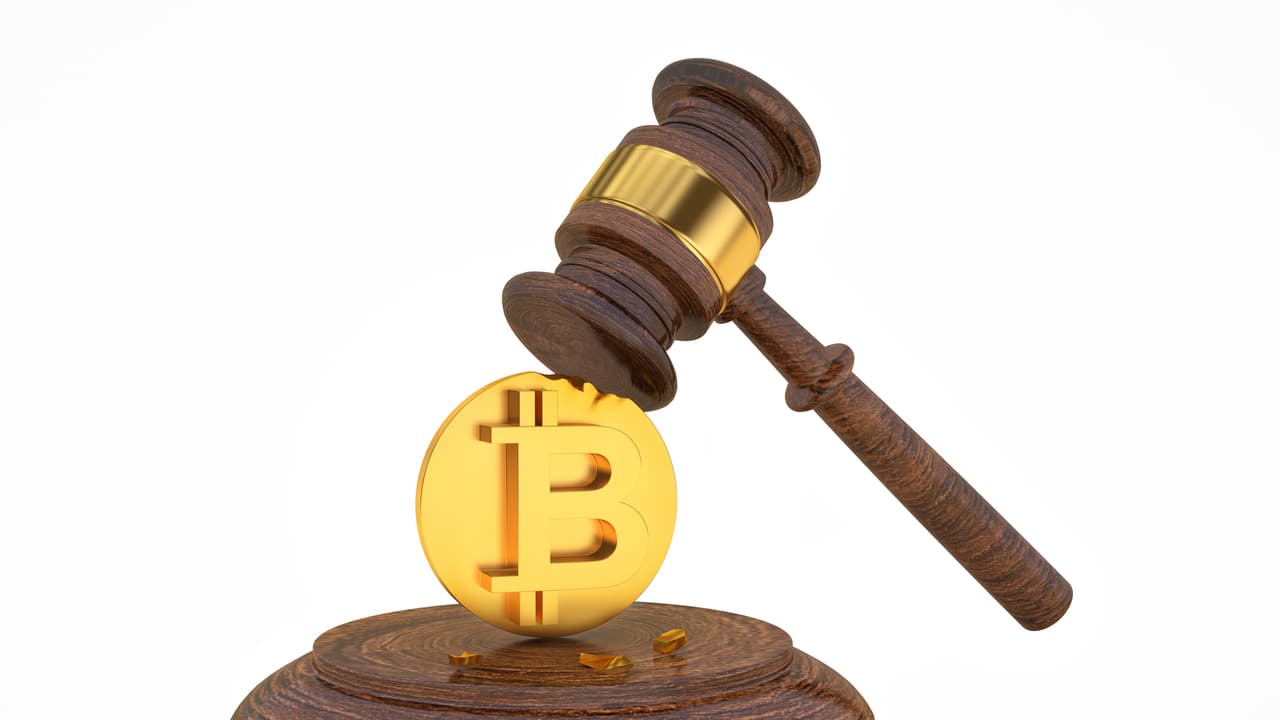The judgment came in a case where an investor’s crypto holdings were frozen by the WazirX exchange after a hack. The court granted the investor interim protection, strengthening the legal rights of crypto holders in India.
Chennai (Tamil Nadu): In a significant legal development, the Madras High Court has determined that cryptocurrency constitutes property under Indian law and can be owned and held in trust, despite being intangible and not recognized as legal tender. The landmark ruling came from Justice Anand Venkatesh in the case of Rhutikumari v. Zanmai Labs Pvt Ltd, involving an investor whose digital assets were frozen following a major security breach. In delivering the 54-page judgment, Justice Venkatesh provided extensive analysis on how cryptocurrency fits within established legal definitions of property. “There can be no doubt that ‘crypto currency’ is a property. It is not a tangible property nor is it a currency. However, it is a property, which is capable of being enjoyed and possessed (in a beneficial form). It is capable of being held in trust,” Bar and Bench reported the court as saying.
What is the Case?
An investor had purchased 3,532.30 XRP coins worth Rs 1,98,516 in January 2024 through the WazirX exchange platform, operated by Zanmai Labs. In July 2024, WazirX announced that a cyberattack had compromised one of its cold wallets, resulting in approximately US$230 million in losses from Ethereum and Ethereum-based tokens. Following the attack, the exchange froze all user accounts, preventing the investor from accessing her XRP holdings. The investor argued that her assets were separate from the stolen tokens and were being held by WazirX as a custodian in trust. She sought legal protection to prevent the company from redistributing her portfolio.
Justice Venkatesh determined that the investor’s XRP holdings were unaffected by the July 2024 cyberattack, which specifically involved Ethereum-based tokens. “What were held by the applicant as crypto currencies were 3532.30 XRP coins. What were subjected to cyber attack on 18.7.2024 in the WazirX platform were ERC 20 coins, which are completely different crypto currencies not held by the applicant,” Bar and Bench reported the court as saying.
The Court noted that while digital tokens are essentially data on a blockchain, they possess key characteristics: they can be defined, identified, transferred, and exclusively controlled through private keys, which give them a proprietary nature. Justice Venkatesh observed that “property” in Indian law encompasses “every species of valuable right and interest”. The judgment also referenced international decisions from New Zealand and the UK that have similarly recognized cryptocurrencies as property capable of being held in trust. The Court highlighted that Section 2(47A) of the Income Tax Act, 1961 recognizes cryptocurrencies as virtual digital assets.
“In Indian law regime, the crypto currency is treated as a virtual digital asset and it is not treated as a speculative transaction. This is in view of the fact that the investment made by the user is converted into crypto currency, which is capable of being stored, traded and sold. Crypto currency is termed as a virtual digital asset and is governed under Section 2(47A) of the Income Tax Act, 1961,” Bar and Bench reported the court as saying.
The Court granted interim protection, noting that if the investor’s assets were substantially reduced under the Singapore restructuring scheme, she would be a vulnerable party entitled to protection. The injunction prevents Zanmai Labs and its directors from redistributing or reallocating the investor’s holdings until an arbitration tribunal resolves the dispute.
Why the Indian Court Had Jurisdiction
The exchange’s Singapore-based parent company had initiated restructuring proceedings requiring all users to share losses proportionally, and argued that Singapore courts should handle the matter. However, Justice Venkatesh ruled that Indian courts could provide interim protection for assets located in India. The Court noted the investor had transferred funds from her Chennai bank account to purchase the crypto assets and accessed the platform from India, establishing that part of the legal cause occurred within Indian jurisdiction. Additionally, the Court observed that Zanmai Labs was registered as a reporting entity under India’s Financial Intelligence Unit, while the Singapore parent company and its former partner Binance were not registered under Indian law.
“In the present case, it is the first respondent, which got registered as a reporting entity and is, therefore, authorized to handle crypto currency in India. Neither the Zettai nor Binance is registered as a reporting entity in India and hence, they are not authorized to handle crypto currency within India or operate the platform,” the court said. This ruling provides important legal clarity on the status of cryptocurrency in India. By establishing that digital assets are property that can be owned, enjoyed, and held in trust, the judgment strengthens the legal rights of cryptocurrency holders and may influence how future disputes involving digital assets are handled in Indian courts.
